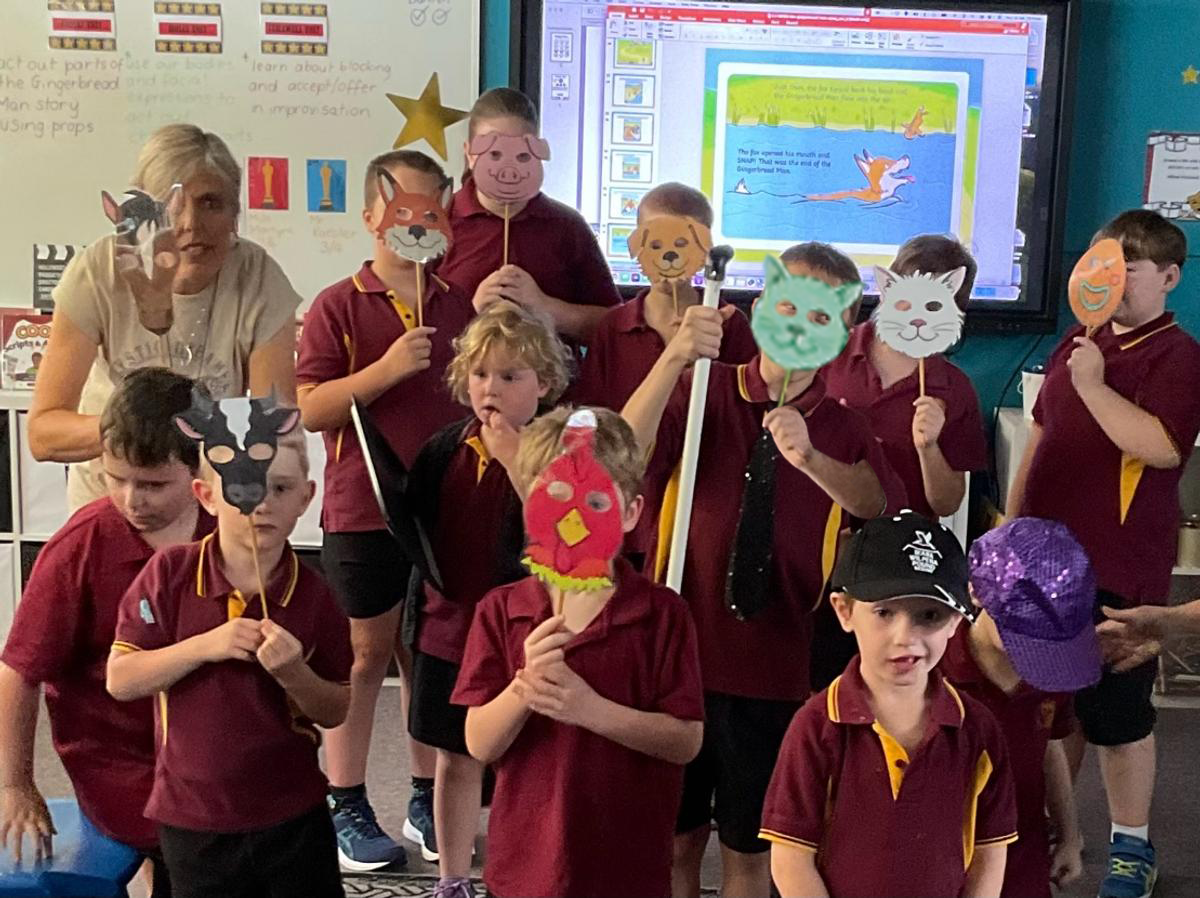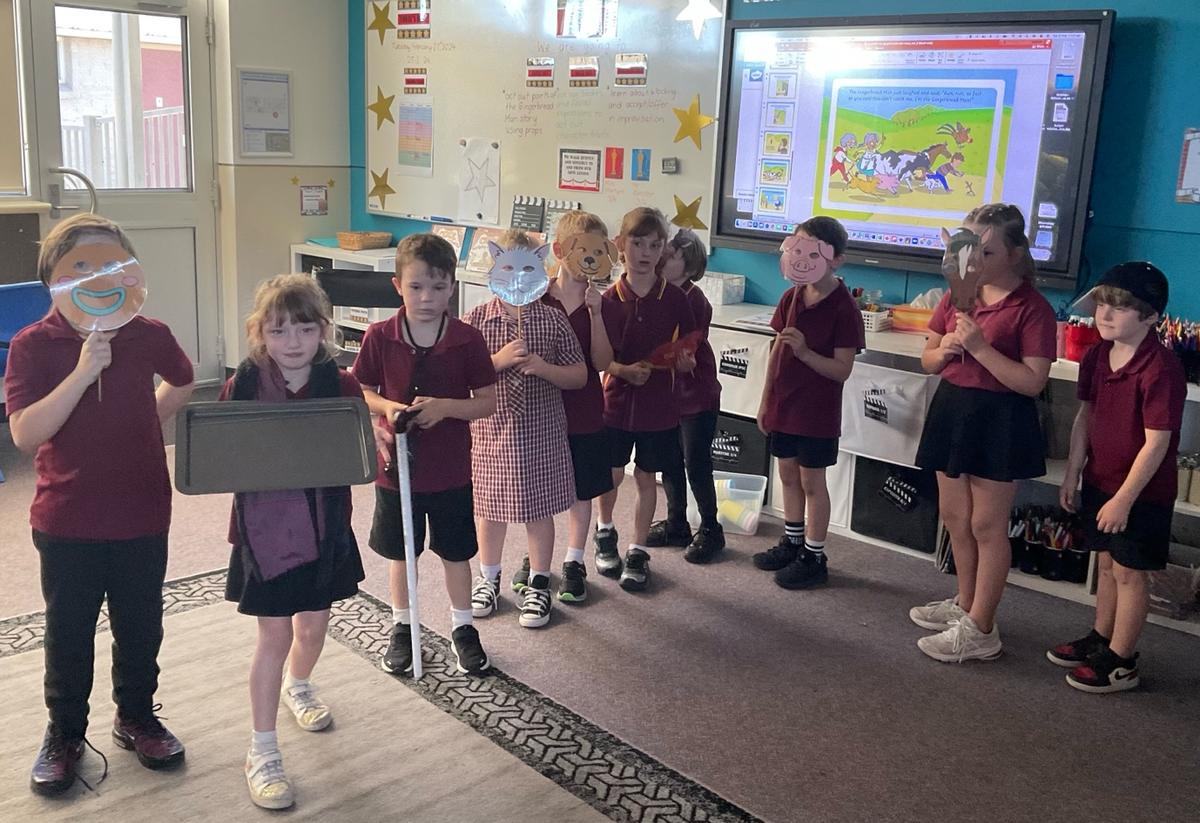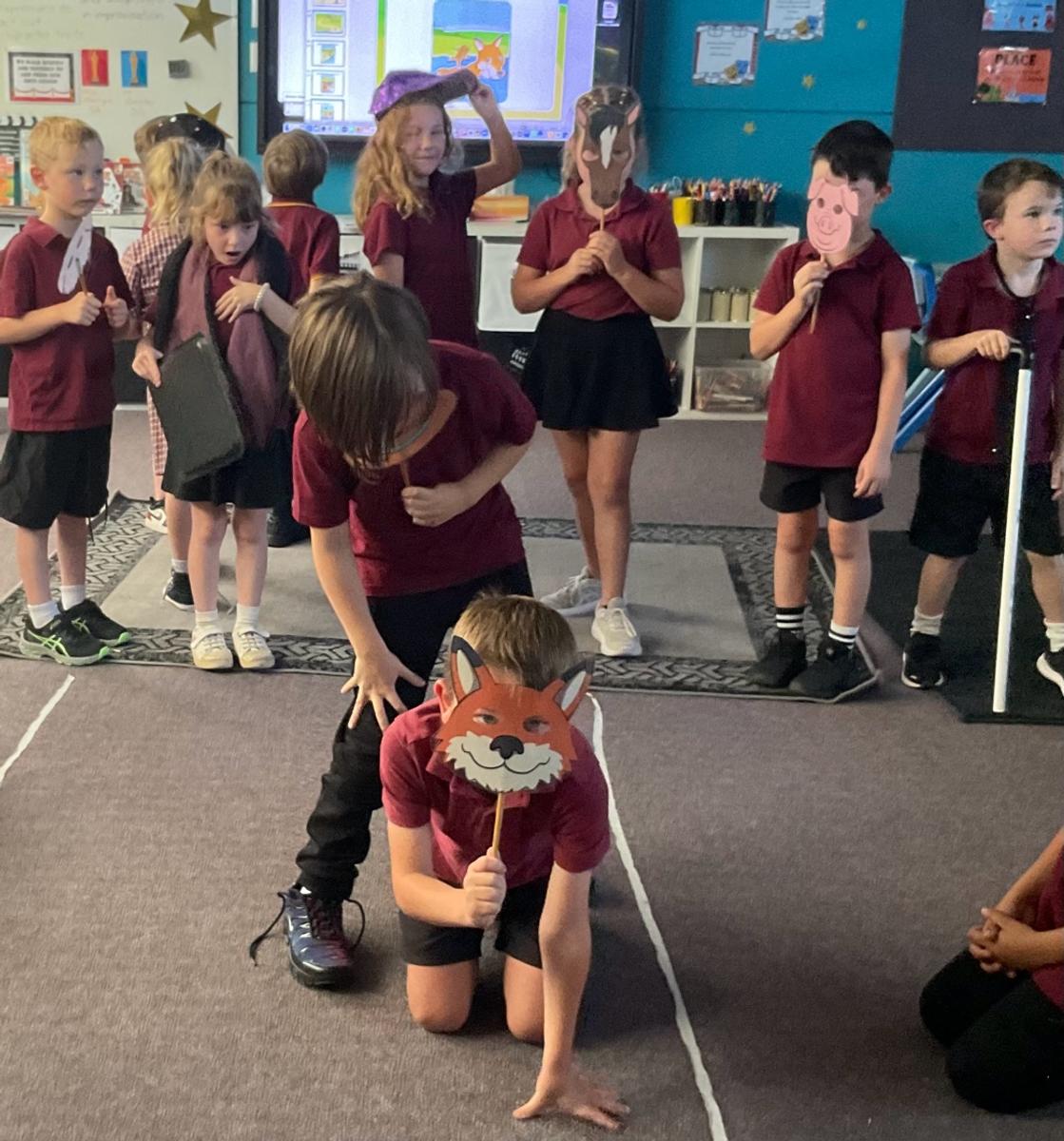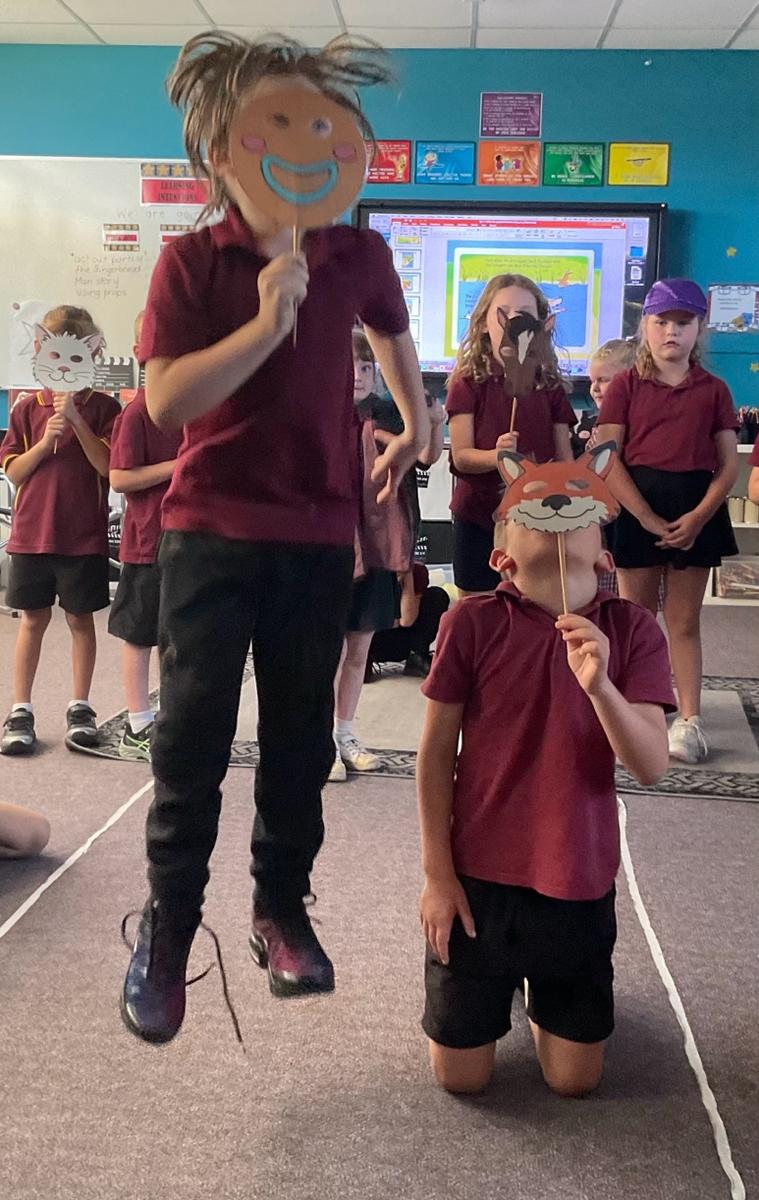THE ARTS
T1 2024

THE ARTS
T1 2024


This term, HEPS students are involved in the Drama component of the Arts. The benefits of learning Drama are:
1. Drama encourages physical, social and intellectual learning.
Drama is more than just a performance-based art form, it is an accessible and powerful interactive learning tool for students.
2. Drama is non-competitive.
Drama is not about who’s the fastest or who are the winners and losers There is no wrong way to use your imagination.
3. Drama helps develop language and concentration skills.
When children take on the language of the role they are playing, they are developing their vocabulary. They become better communicators through being encouraged to express themselves using words as well as through facial expressions and body language.
4. In a society of screens, Drama allows children to use their vivid imaginations
Improvisation and dramatic play encourages the development of creativity, problem solving and imaginative responses.
5. Drama builds confidence.
In Drama children are put in situations (in a safe environment) where they are called on to step outside their comfort zone. They must be brave in using their imaginations, playing characters and coming up with ideas on the spot.
Source: The Drama Toolbox
Castle Unit
Classes in the Castle Unit have listened to, and acted out scenes in the story of The Gingerbread Man. They are now involved in a reimagined version of this fairy tale called Gingerbread Jo using Australian animals as the characters. They will be developing dramatic skills by using their facial expressions, body movements, voices and props to represent characters in this story.
Holly Unit
Holly Unit classes are exploring the role of characters in drama. Students have identified what inner and outer character traits are. For example, Luisa in Encanto is big, muscular and strong – these are what we see on the outside- her outer traits. She is brave, bossy and hardworking – these are seen by her movements and the conversations she has with others – her inner traits. For the remainder of the term, students will be creating, developing and performing different characters and their traits using the elements of voice, body and movement.
Stillwell Unit
Students in the Stillwell Unit have been introduced to the art of improvisation – the art of creating in the spur of the moment. Through involvement in small group improvisation tasks, students are developing creative exploration, expressive skills in speech and movement and an understanding of improvisation strategies such as accept and offer, masking and blocking.
HEPS Choir 2024
Choir started in Weeks 3 and 4 of this term with 63 students from Year 3-6 participating in Come and Try sessions. Students were involved in learning different warm ups to help get their voice and body ready to sing, discovering the expectations of being a member of the choir, listening to some songs from this year’s repertoire, and taking part in singing rounds and “just for fun” songs. Last week, Miss Hay and I had the difficult job of choosing students to be members of the HEPS Choir for 2024. These children have been sent notes and information home. Those students in Years 3 and 4 who did not get selected were strongly encouraged to try again next year.








Retelling of The Gingerbread Man with masks and props – Ms Kopania’s Year 1/2 class and Mr Grieve/Mr Goodman’s classes